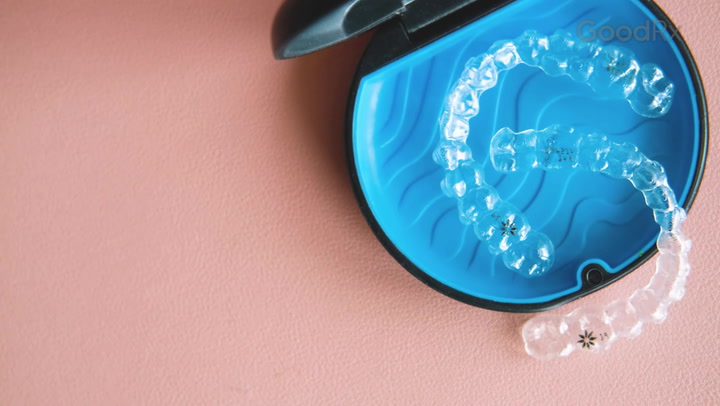
How Much Do Dentures Cost?
Key takeaways:
A full set of permanent dentures is likely to be at least $1,000 and may cost as much as $28,000. Expect additional costs for fitting and maintenance services.
Sometimes dental insurance will help cover the cost of false teeth.
People in need may be able to get inexpensive or free dentures from clinics or dental charities.

More than 36 million Americans have lost all their natural teeth, and roughly 90% of them use dentures. Today’s dentures look natural and fit more comfortably than the ones our parents or grandparents wore. They’re made of flexible materials like nylon and acrylic resin.
Modern dentures come in many forms, including:
Removable full dentures that cover the whole mouth
Removable partial dentures that replace sections of missing teeth
Full or partial dentures that are attached to dental implants to make them more secure
Immediate dentures that you get the same day as a tooth extraction
If you have some natural teeth left, you can either get a partial denture or have the rest of your teeth extracted to make room for full dentures.
In short, you have plenty of options — but some of them can be pretty pricey.
How much do dentures typically cost?
Costs for full dentures depend on the type you choose. According to Authority Dental, the denture types and typical prices per arch are:
Traditional dentures: These average $1,800 without insurance, but you could end up paying anywhere between $1,000 and $3,000.
Implant-supported dentures: These can cost between $15,000 to $28,000 for a full arch, with $21,500 being the average.
Immediate dentures: Usually replaced within a matter of months, dentures of this type go in immediately after your teeth are extracted. One arch costs an average of $1,900. Prices range from $1,000 to $3,000.
Partial dentures typically cost about $1,500. A partial denture is held together by a framework that keeps it in place next to your natural teeth. Its cost mostly has to do with the framework material. Options include:
Resin base: This type of denture is usually $1,500, but prices commonly range between $800 and $2,700. A denture with this base won’t be as strong as other options.
Metal cast: One of these dentures generally costs $2,000, with a range of $1,300 to $3,100. A metal framework is less likely to break and more likely to fit your mouth well.
Flexible nylon: Designed to fit comfortably on your gums, this kind of denture averages about $1,700, but can cost between $900 to $2,500.
Interim choices: Short-term dentures may be made of acrylic, resin polymer, or nylon thermoplastic. They cost an average of $750 and range in price from $450 to $1,110.
What additional denture costs are there?
Other costs that come up when you get dentures include having your teeth examined and extracted if need be. If your insurance covers dentures, it may also cover some related expenses, such as anesthesia. Then again, it may not. Here are some possible out-of-pocket costs:
Oral exams: Oral exams can cost about $100. Your dentist checks that your mouth and gums are healthy.
Tooth extraction: You can expect to pay about $300 for each tooth the dentist removes to prepare for your dentures.
Anesthesia: Local anesthesia given by injection is usually included in the tooth extraction price. If you need general anesthesia, you could pay $250 for the first hour, and then $200 for every 15 minutes needed.
Diagnostic casts: A dental professional makes a silicone or wax mold of your teeth to determine the shape of your dentures. The average cost for a mold is $35.
Panoramic X-ray: If your dentist needs this to get a better look at your jaw, it’ll cost about $130.
Tissue conditioning: This helps your gums heal from extractions or ill-fitting dentures. It involves having your dentist attach a soft lining to your dentures every 2 to 3 weeks until your gums feel healthy again. Afterward, your dentures should fit comfortably and work well. This usually costs around $190.
Denture adjustments: Over time, as your gums change, dentures need adjusting to stay properly fitted. Adjustments may be included in your original denture cost. If not, you’ll pay about $100 each time.
Denture relining: The base of a denture needs to be relined when it doesn’t fit well. You can expect to reline your dentures every year or so. A chairside relining (in the dentist’s office) will cost $400. A laboratory relining is $500. There are also at-home/DIY denture relining kits for $10 to $50 that may tide you over between professional relines.
WHAT TO READ NEXT
Popular stories this week
Are dentures worth it?
Dentures have pros and cons, so whether they’re worth it to you depends on your needs and lifestyle. But for many wearers, the benefits of dentures outweigh their drawbacks.
Pros
Make it easier to speak and eat, if properly fitted
Can stop your mouth from sagging inward
Custom-fitted
Natural look
Cheaper than other alternatives
May improve your quality of life and restore confidence
Cons
Require a lot more care than implants
Require a separate upkeep routine in addition to your oral hygiene
May need reapplications of denture adhesive throughout the day
Require regular checkups to adjust your fit
Need replacement every 5 to 10 years
Can make it hard to eat comfortably or speak clearly, if poorly fitted
Does insurance cover dentures?
It depends. Dentures are typically covered by private dental insurance. The amount of coverage varies between plans. Many insurers pay 50% of the cost of your dentures, up to the plan’s maximum benefit amount and minus any deductibles. Insurers may cover only one set of dentures or one arch every 5 to 7 years.
Under the Affordable Care Act, marketplace health insurance plans aren’t required to offer dental coverage to adults. However, you can purchase a marketplace dental plan when buying health insurance. Plans will differ in their denture coverage, so keep an eye on the details when choosing a policy.
Medicare Parts A and B do not cover the cost of dentures. Medicare Part C (Medicare Advantage) plans often do include dental services, with many covering the cost of dentures.
If you have Medicaid, 31 states cover full dentures; almost all cover partial dentures, as well. Some states limit you to one set per lifetime. In others, you may be able to get a new set every 5 or 10 years.
If you can’t find dental insurance that works for you, you may want to look into dental discount plans. You can also use HSA/FSA tax-advantaged savings accounts to pay for dentures.
Where can I get free or low-cost dentures?
If you’re looking for reduced-price or subsidized dentures, you can try:
Older adults, people with disabilities, and members of other groups may be able to get free dentures from programs such as:
Give Back a Smile (domestic violence survivors)
Dental Lifeline Network (permanently disabled, elderly, or medically fragile people)
How long do dentures last?
Dentures can last for years if properly cared for and cleaned daily — but they won’t last forever. Full dentures should be replaced every 10 years, while partial dentures can last up to 15 years.
Implant-supported dentures are fixed into your mouth. Though they’re sometimes called permanent dentures, they will probably need replacing within 10 to 15 years. In the meantime, a prosthodontist can remove them for repair if they break or stain.
Are there alternatives to dentures I should consider?
Removable dentures are among the least expensive ways to fill in missing teeth. For more permanent solutions, you’ll have to pay much more:
A dental bridge can cost up to $2,500 for one missing tooth.
Dental implants cost $4,800 for a single implant and average $43,000 for the full mouth.
A full arch of implant-supported dentures averages $21,000.
The bottom line
Conventional dentures are less expensive than other replacements for missing teeth, such as implants — but they’re still pricey. Your cost will depend on your type of denture you choose and the materials used to construct it. You may also have to budget for services like X-rays, tooth extractions, and relining.
If you lack dental insurance, a set of new teeth could cost you thousands of dollars. Fortunately, in many states Medicaid covers full and partial dentures.
References
American College of Prosthodontists. (n.d.). Dentures FAQs.
American College of Prosthodontists. (n.d.). Facts and figures.
American College of Prosthodontists. (n.d.). Relined dentures.
Catholic Charities of South Carolina. (n.d.). Wellness services.
Commission on Dental Accreditation. (n.d.). Search for dental programs.
Dental Lifeline Network. (n.d.). State programs.
Department of Scientific Information, Evidence Synthesis and Translation Research, American Dental Association Science and Research Institute, LLC. (2021). Denture care and maintenance.
Give Back a Smile. (n.d.). Give Back a Smile.
Hattaway, R., et al. (2022). How much do dental implants cost in 2020?. Authority Dental.
Hattaway, R., et al. (2022). What is the All-on-4 dental implants solution? How much does Ao4 cost?. Authority Dental.
Health Resources and Services Administration Data Warehouse. (n.d.). Find a health center.
HealthCare.gov. (2016). Brushing up on how to use Marketplace dental insurance.
HealthCare.gov. (n.d.). Dental coverage in the Marketplace.
March, P., et al. (2022). How much do dentures cost without insurance in 2022?. Authority Dental.
Medicaid and CHIP Payment and Access Commission. (2021). Medicaid coverage of adult dental services. Issue Brief.
Medicare.gov. (n.d.). Dental services.
National Association of Free & Charitable Clinics. (n.d.). National Association of Free & Charitable Clinics.
Taylor, M., et al. (2021). Longevity of complete dentures: A systematic review and meta-analysis. Journal of Prosthetic Dentistry.




























